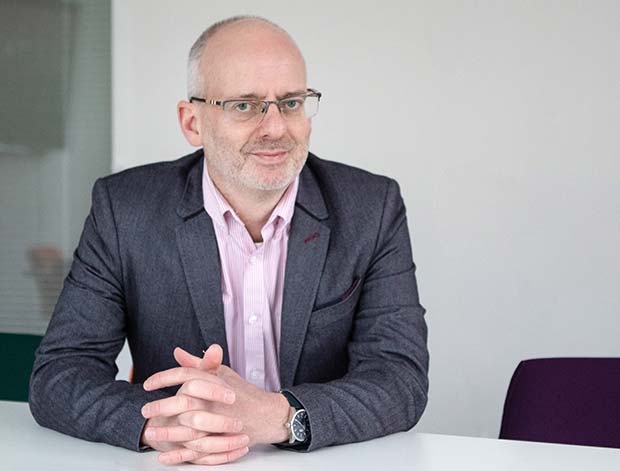GroceryAid’s industry summer party, Barcode Festival, returned this year to a new venue, Magazine London with a sell-out event that raised more than £750,000 for grocery colleagues in need.
 Over 3,800 tickets were sold and a record 75 sponsors supported the event with many using it to launch new brands, making it the most successful event in the festival’s three-year history.
Over 3,800 tickets were sold and a record 75 sponsors supported the event with many using it to launch new brands, making it the most successful event in the festival’s three-year history.
Barcode is a flagship fundraising event with companies using the festival to reward colleagues, showcase products and make new connections.
Entertainment for the evening was spread across three main stages. On the Skittles Stage guests enjoyed headline acts Rudimental with Ella Eyre, Example, Becky Hill, Scott Mills and Levi Roots.
Some of the UK’s best known celebrity chefs cooked for packed crowds from the Demo Kitchen Stage: Ainsley Harriott, Levi Roots, Briony May and Kenny Tutt all featured.
Outside, there was more entertainment to enjoy on the Volvic Variety Stage from British drag queen The Vivienne, who delighted fans with comedy cabaret.
At the event, Wholesale Manager caught up with Steve Barnes, CEO, GroceryAid, to hear about the services the charity provides and the challenges it faces.
How much money do you expect Barcode to raise this year?
It will be upwards of £700,000, just about double what we raised last time. It’s a fantastic amount. We have achieved the double amount by increasing both ticket sales and sponsorship. There has been no inflation. We have kept ticket prices the same. We got 3,500 ticket sales and we have got 74 sponsors, which is a lot. We only had 40 last year so there is a big scale-up on that. We would like to get more sponsors. It’s incredible how well the industry has supported the event.
How popular was the demand for tickets this year?
We sold out. The hope is that with some changes in the layout, we can add another 500 to the capacity for next year. The event will be in the same venue next year. So we have got a bit more headroom for next year. If it goes really well and everyone loves it, there’s this window of marketing that you can go for straight away, and everyone books in the same numbers, we can have capacity challenge again. I would hope we can sell it out again very quickly. We sold this one out six months in advance. That was with the uncertainty of whether people would be able to come to an event. We pushed it back. It was originally scheduled for July. We had sold out by December because everyone thought Covid would be over by the summer.
Did Covid-19 create an increased demand for your services?
Yes. There were a couple of factors at play. Firstly, the circumstances in which people from the industry and the trade find themselves and the effect Covid directly has on their colleagues and their families, where they need help. So we have seen that but we have also done a lot of work to raise awareness. You guys have been as good as anyone at raising the profile of GroceryAid. But we have seen a phenomenal increase in demand. For the last three months we have averaged over 400 applications each month. To put that into context, when I started five years ago there were a lot less than 50 applications a month. That’s what we are there to do. We are not there to sit on our backsides and watch our reserves grow. We are there to help colleagues when they need it. We are the most relevant, modern, accessible benevolent society in the country and we take great pride in what we do. We treat everybody who comes to us with humility, empathy and compassion. We treat everyone as an individual. There is no one size solution fits all.
For colleagues who are brave enough to come to us the question is how can we solve the immediate problem and how can we work with them over a longer period of time so we really get to the root cause of the problem. Sometimes that is very difficult. Domestic abuse is one example of a problem we help with a lot. Coming out of Covid, one of the big trends we have seen is the absolutely phenomenal increase in relate counselling. Everyone has been crammed into their family units and it has caused issues. Counselling services for us has been huge, the relate counselling has gone through the roof. We offer nationwide counselling but we do it through a third party so we have got counsellors on the ground in every postcode.
The relate counselling is either done virtually or they have relate counselling officers around the country. We offer six sessions. There is quite a cost to that so it is good that the charity can absorb that and give colleagues the chance to repair relationships if they are damaged within a family. The pressure people have been under, locked in houses together, is bound to exacerbate any tensions. Hopefully the counselling can help individuals recognise the problems and overcome the challenges they face.
Tell us about the School Essentials Grant. What does this grant involve?
We became aware of research last year talking about how people on relatively low incomes are struggling to buy school uniforms. So we had this idea to set aside a fund of £75,000, which is £150 per dependent child and when its gone its gone. We ran it last year and we were absolutely overwhelmed with demand. So we quadrupled the size of the fund last year and used the charity’s fund as it is intended, to help colleagues. This year we are going with a fund of £300 but we have got a huge amount of help from the trade charities trust who weighed in with a similar amount so we were able to more than double what we did last year. I think we have helped something like 3,600 children go to school properly equipped when otherwise they might not have been. If you don’t start school with proper stationery, proper uniform, proper sports gear, kids being what they are, they recognise those who have less than them. It gets them off to such a poor start that their long term outcome is sub-optimal. We could only keep the fund open for two weeks which I think was phenomenal given the coverage it got. We had thousands of applications. We processed them all in good time for people to go out and buy uniform ahead of the start of the school term which I’m very proud of. There were some checks we had to do to make sure colleagues were eligible for the support we gave.
Looking forward, we will definitely do it next year. It’s a bit daunting, the size of the fund that we will be looking for next year. We know there is more demand for it so I don’t know what we can do next year. The industry has been very good to us.
What are the biggest challenges that GroceryAid faces?
I still think despite the steep increase in applications, despite the thousands of colleagues we are helping, I still don’t think enough individuals in the trade know we are there. I still think the biggest challenge is awareness. We have been doing a huge amount of work and we have seen a real step change in levels of awareness. We have gone from 5% of independent retailers to 33% so that is still only a third of independent retailers that are aware of us. We are in the lap of the companies we work with. It depends on how much time and space they have to help us raise awareness. We will go with what they want to do.
Sainsbury’s for example is very good at raising awareness with internal newsletters. They communicate with their colleagues in a different way. So it’s about what is the most effective way of talking to your colleagues. Some do vox pops, some do staff magazines, some do table tops, some do posters, some do video screens. We will do whatever. What would make me proud if I was to walk into any independent store, supermarket or factory in this country and ask the cleaner or the person working in the canteen if they have heard of GroceryAid and they said yes.
They don’t do that now. We are there for the most vulnerable members of this great trade and there is not enough awareness. I think we have done a magnificent job. It’s our responsibility to raise awareness, we have got to make it easy. There is more we can do. I think that is still our biggest challenge. If we get overwhelmed by applications we will have to find a way to support them.

Why do you get involved in the GroceryAid charity and the Barcode festival?
At Danone we take social responsibility very seriously because we are working towards B Corp. Being actively contributing to your community is one of the things. We work with 68 charities in the UK in two ways. One is through volunteering, to actively engage in the charity. Secondly is financial contributions. GroceryAid is clearly one of our key partners. We sponsor a number of events with GroceryAid through the year to provide that support. The team are here volunteering. They are the people at the front with the signs telling people where to go. So we are getting involved as well as contributing financially.
It has never been more important to support. A number of sponsors like ourselves have increased the support following the pandemic because that is when it is needed.
I have only been back in the country for 18 months after working in Australia so I have never been to a GroceryAid event.
How else does your company get involved in supporting Barcode and GroceryAid?
We support a number of different events like the Windermere Row. We like to get involved because it’s important to get involved through the year rather than it being a one off thing. We have been involved for three or four years and have been a gold sponsor for a couple of years.
Is the industry doing enough to support GroceryAid?
It’s difficult to know whether anything is enough. I believe everyone is involved both on the retailer and manufacturer side. I can’t think of anyone who is not providing some support. I think GroceryAid do a great job in offering, communicating and encouraging people to take the benefits of the service they offer. I genuinely think they have provided great support, particularly during Covid.
Raising awareness is one of the biggest opportunities, even amongst my own business. We offer welfare support and confidential carelines.




Comments are closed.